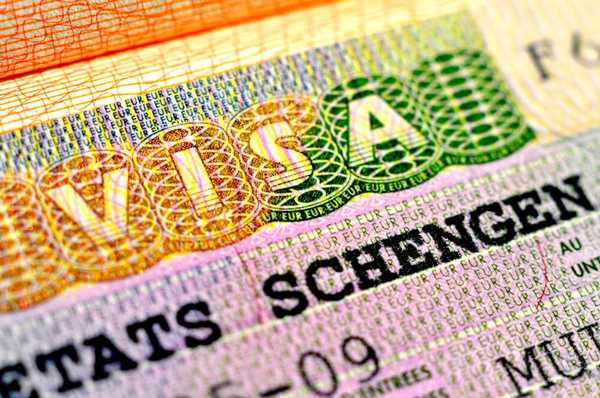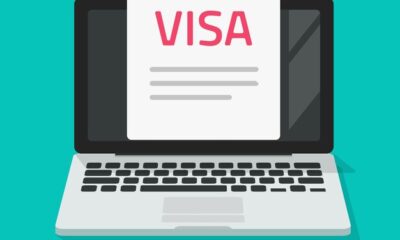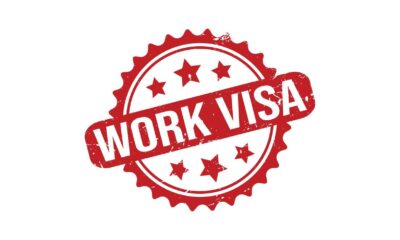Visa
Schengen Visa Application Fees And Fee Waivers Per Category

When applying for a Schengen Visa, you must pay a visa fee at the time of application. The Schengen visa cost must be paid in order for your visa application to be processed properly. If the fee is not paid, your application will be considered unsuccessful and will be closed.
How Much Does a Schengen Visa Cost?
Schengen visa fees are as follows:
Category – Amount in EUR – Amount in USD – Amount in Indian Rupee
- Adults: 80.00€, $88.53, 6,540.29 Indian Rupee
- Children (6-12 years old): 40.00€, $44.26, 3,270.14 Indian Rupee
- Children (younger than 6 years old): Free, Free, Free
- Holders of diplomatic passports traveling for official purposes: Free, Free, Free
- Family members of an EU/EEA national: Free, Free, Free
- Students and with teachers during a school trip: Free, Free, Free
- Researchers and scientists traveling for professional reasons: Free, Free, Free
- Representative of nonprofit organizations (25 years or less): Free, Free, Free
- Citizens of Armenia, Azerbaijan: 35€, $38.73, 2,861.32 Indian Rupee
Nationals of Serbia, North Macedonia, Montenegro, Bosnia and Herzegovina, Moldova, Albania, Ukraine, and Georgia who still need to apply for a visa (who do not own a biometric passport), visa facilitation agreements stipulate a fee of EUR 35.
Schengen Visa Fee Waivers
The visa fee is waived for applicants who belong to the following categories:
- Children under six (6) years of age.
- School children, students, postgraduate students, and accompanying teachers who have to enter the Schengen Area for the purpose of study or educational training.
- Researchers from third countries traveling for the purpose of conducting scientific research.
- Representatives of non-profit organizations aged 25 years or less who will be participating in seminars, conferences, sports, and cultural or educational events are organized by non-profit organizations.
- For the purpose of ‘replacing’ an old, valid visa in a ‘full’ travel document (one that is out of empty pages) with a new visa valid for the same period in the applicant’s new travel document.
The visa cost may be waived or reduced on occasion to enhance cultural or sporting activities, as well as interests in other areas of important public interest or humanitarian purposes, such as foreign policy, development policy, and others.
Additional Fees and Costs
Other than the Schengen visa fee, you may also encounter the following costs associated with a Schengen visa application:
- Visa processing fees charged by third-party service providers
Many Member States partner with third-party service providers to collect visa applications and supporting documents. These providers (visa application centers such as VFS Global, TLS, and others) may charge up to 50% of the Schengen visa cost in processing fees.
- Travel Insurance
When applying for a Schengen visa fee, you must have Schengen travel medical insurance that is valid throughout the Member States’ territories. Schengen travel insurance is affordable. A basic one-week insurance policy costs between €18 and €30. However, it is dependent on how long you intend to stay, e.g., the length of your trip, as well as your age and coverage alternatives.
- Translation services
When applying for a Schengen Visa, all documents must be translated into English or the official language(s) of the Schengen Member State to which you are traveling. Because the translation must be certified by a translation service, you may be charged an additional fee. The cost of translation varies by country.
- Courier or mailing fees
When applying for a Schengen visa, you often leave your passport at the embassy. So, after a decision is reached, the embassy/consulate or visa application facility must return your passport. You must pay the courier expenses, which will vary depending on the country.
Payment Methods and Currencies
Visa fees are usually paid in the currency of the embassy or consulate. The ECB reference rate must be used to convert the visa fee from that currency to EUR. The local currency visa cost should be determined using the exchange rate at payment.
The country and embassy or consulate where you apply for a Schengen Visa decide the payment options and currencies accepted. The following payment options are accepted:
- Cash – Some embassies or consulates may allow payment of the visa fee in cash. However, it’s important to verify if cash payments are accepted and if there are any specific requirements or restrictions.
- Bank Transfer – Many embassies or consulates provide bank account details where you can transfer the visa fee electronically. This method typically requires you to initiate the payment from your bank account using the provided information.
- Credit/Debit Card – Certain embassies or consulates accept payment through credit or debit cards. This option allows you to make the payment securely using your card details.
Can I Pay My Schengen Visa Fee Online?
Yes, you can often pay your Schengen Visa cost online. Many Schengen countries allow you to pay the visa fee online using credit or debit cards through their visa application portals or specific payment platforms.
However, you must examine the Schengen Visa application requirements and procedures of the country’s embassy or consulate. They will tell you how to pay and if online payment is possible. A flawless payment process requires following official guidelines and instructions from relevant agencies.
Do Children and Infants Also Need to Pay Visa Fees?
When applying for a Schengen Visa, children under the age of six are exempt from paying any expenses. Children aged six to twelve, on the other hand, must pay a price of 40.00€ ($44.26 as of May 2023).
Are Visa Fees Refundable if My Application Is Rejected?
No, the Schengen visa application fee is not refundable. Whether you are granted or denied a visa, your visa fees cannot be repaid. Even if you decide to withdraw your application, your visa fee will not be repaid.






















